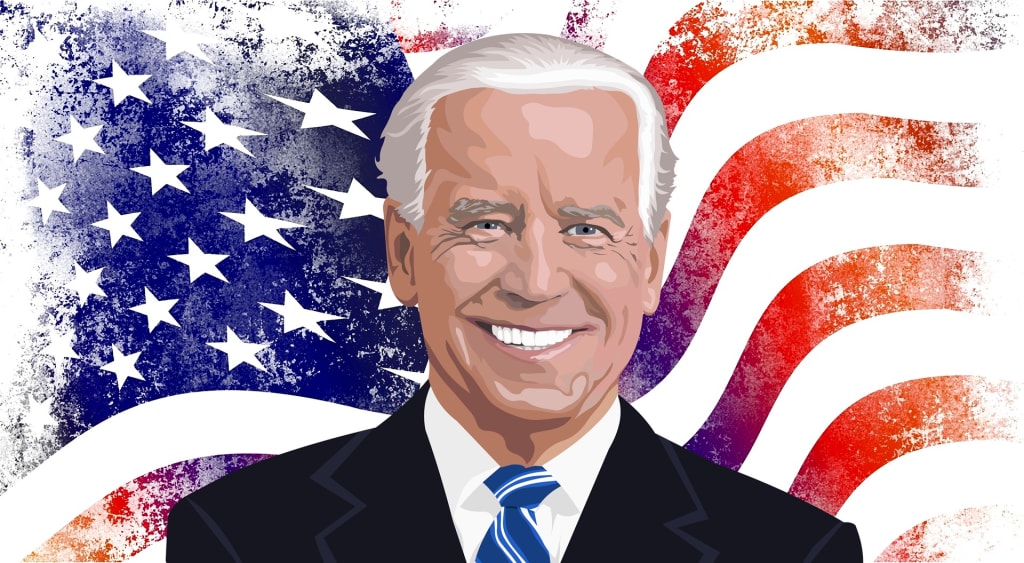The Thorny Path of Biden's Foreign Policy Ambition
Although US President Joe Biden has always been adamant in his foreign policy, he has been harsh on the historically hostile United States, Russia, and China

In the wake of World War II, Harry S. Truman, then President of the United States, undertook a major task in reviving the US economy. Incumbent US President Joe Biden is currently pursuing a similar approach to dealing with Corona and its economic losses.
The Biden administration has shown more interest in multinational foreign policy than in bilateral foreign policy. Before the election, Mr. Biden hinted at democracy, human rights, flexibility, and kindness, which are notable in his current foreign policy. However, despite his policy stance, he has historically slammed Russia and China, the ever-existing enemies of the United States.
The main objective of US foreign policy during the post-World War II Cold War was to increase the capitalist leadership and economic recovery by reducing the influence of communism in the world, that is, the then Soviet Union (now Russia). Similarly, in the current US foreign policy, the communist states of China and Russia have gained the most importance. At the same time, more emphasis has been placed on tackling the coronavirus and economic growth, and homeland reconstruction.
In response to China's declaration of itself as a "wolf warrior" in the fight against the coronavirus and terms of energy and economic progress, President Biden met on March 12 to co-operate with India and Japan, two of Asia's largest nations, and Australia on coronavirus. It is to be noted that India and Japan are one of the most hostile countries of China in Asia. The summit could be seen as a warning to the United States in the region against China.
On the other hand, the United States has maintained its historical attitude towards Russia. The Biden administration recently drafted a 23-page draft on national security that outlined a tough policy on Russia. In a recent television interview, President Biden called Russian President Vladimir Putin a "murderer." According to analysts, President Biden believes in the orthodox principle of "systematic rivalry".
"Today, the Russian government is shamelessly undermining the foundations of Western democracy around the world," Biden wrote in an analytical article on the animosity between the United States and Soviet Russia during the Cold War in late 2017. Biden has sharply criticized Russian President Vladimir Putin for poisoning Russian opposition leader Alexei Navalny and imposed sanctions on Russian officials. On the other hand, President Biden accused China of violating the rule of law and human rights in the Xinjiang and Hong Kong issues.
This shows that the Biden administration believes in the historical hostile policy towards China and Russia.
There is no doubt that the current administration in the United States attaches the greatest importance to its relations with the outside world. After being elected, Mr. Biden first visited the State Department and announced a halt to the withdrawal of any US troops from Germany. Needless to say, the announcement was made to restore confidence among NATO members and to signal to Russian President Putin.
He also strongly criticized the bloodless coup by the Myanmar army on February 1, 2021, and warned the army chief to step down.
On the other hand, taking a stand against the war in Yemen, the Biden administration has stopped all military and intelligence assistance in the war. However, he acknowledged that their numbers were not enough to defeat Saudi Arabia. These policies imply that from now on, the United States will pursue the path of humanitarian diplomacy as envisaged before the election.
Another aspect of Biden's foreign policy is the maintenance of cooperation and friendly relations with the Allies, which have been the subject of much controversy under former President Donald Trump. The Trump administration has also come under fire for withdrawing membership in various international agreements and organizations.
However, the Biden administration seems to be moving away from those debates and criticisms and moving towards friendly diplomacy with allies. President Biden has already announced that the Trump administration will return to all the agreements and organizations that it withdrew from.
One of the disagreements is the "Joint Comprehensive Plan of Action" signed with Iran in July 2015. The deal was initiated by then-President Barack Obama out of concern that Iran's nuclear capabilities would not pose a threat to the world. The agreement was signed between the five permanent members of the Security Council, including Germany, the United States, the United Kingdom, China, Russia and France, and Iran.
But in 2018, when then-President Trump withdrew the agreement and re-imposed sanctions on Iran, Iran also violated the agreement's policy by announcing more uranium enrichment. Many allies also criticized the Trump administration for its incompetent diplomatic decisions. But the hope is that the current administration will peacefully return to its previous agreement with Iran.
The Trump administration also pulled out of the Paris climate adopted by 196 countries through COP-21 in 2015. As a result, the future of this agreement was threatened. Because the United States is one of the world's major carbon emitters. President Biden recently announced his withdrawal from the agreement. Former President Trump also withdrew membership from UNESCO and the World Health Organization. Biden has promised to return to these organizations.
Countries on the African continent have not escaped the attention of the Biden administration. Initiatives have already been taken to establish peace and stability in the Horn of Africa.
In short, the current policies of the Biden administration reflect the post-World War II multilateral and multinational policies, such as country restructuring, diplomatic engagement, economic recovery, and increased cooperation through regional and international organizations. But the worry is how the United States will be able to establish a strong post-World War II influence around the world in four years, overcoming the pressure of numerous incompetent decisions made during the Trump administration! Because of the new power, China has emerged in the present world. Although the United States is the world's number one country in terms of GDP, China is now the world's number one country in terms of purchasing power. In the twentieth century, the United States, through its efficient diplomacy and strategic decisions, was able to expand its influence as easily as it overtook Soviet Russia in military and economic power. Because now the United States has to think not only about China but also about many other important and complex decisions.
The new security strategy issued by the Biden administration contains only three umbrellas about Russia, although Biden has taken a hard line on Russia and called Putin a "murderer." But there is no mention of Ukraine and the Baltic states. Experts fear that if the Biden administration increases aid to Ukraine, Russia could become more militant in Ukraine or launch a cyberattack on the United States.
The strategy also does not mention a clear policy on North Korea. The only thing that has been said is that US diplomats need to strengthen their position against Pyongyang's nuclear and missile programs. If the United States imposes tougher sanctions on North Korea or increases the US military presence in South Korea, North Korean President Kim Jong Un may decide to test nuclear and intercontinental ballistic missiles. What the US strategy might be in dealing with the situation is still unclear.
The only thing that has been announced about Iran is that the United States wants to return to the previous agreement. Earlier last year, Iran also expressed a conditional return to the previous agreement. But then there were other incidents, such as the assassination of Kashem Solaimani and the assassination of scientist Fakhrizadeh, which made the road back to the previous agreement even more thorny. The Biden administration will also have to make a very prudent decision on how to bring Iran back to the nuclear deal in a peaceful way.
The United States has criticized Myanmar's military coup and imposed sanctions on some military officials, but has not resisted Chinese influence. The UN Security Council passed a resolution condemning Myanmar, but only because of China's veto. Meanwhile, Myanmar's military government is busy paving the way for China to consolidate power in the international arena.
Although the two-month-old Biden administration at the White House has gained some international reputation for its policy-making skills and prudence compared to the previous Trump administration, its policies are flawed. The biggest challenge for President Joe Biden now is how the United States will be able to overcome these shortcomings and return to the position of the past century in the next four years.
About the Creator
Shoaib Rahman
Shoaib Rahman (pseudonym) is an author, technology entrepreneur, screenwriter, and magazine editor. Rahman is the founder and editor-in-chief of the liberal magazine and publishing platform Fadew, and its parent holding company Fadew, Inc.






Comments
There are no comments for this story
Be the first to respond and start the conversation.